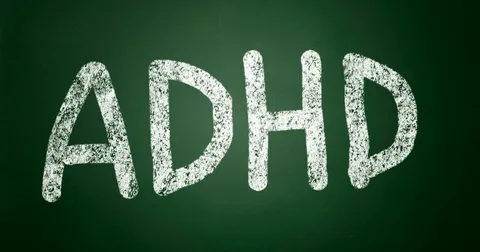Attention Deficit Hyperactivity Disorder (ADHD) is a prevalent neurodevelopmental disorder that affects individuals’ attention, impulse control, and activity levels. However, many other mental health conditions share overlapping symptoms with ADHD, making accurate diagnosis and treatment challenging. This article explores how ADHD compares to other mental health conditions, including anxiety disorders, depression, bipolar disorder, and Autism Spectrum Disorder (ASD), to provide a clearer understanding of their distinct and shared features.
Understanding ADHD
ADHD is characterized by persistent inattention, hyperactivity, and impulsivity that can disrupt various aspects of life. Symptoms typically manifest in childhood but can continue into adulthood, affecting academic performance, work productivity, and social relationships.
Core Symptoms of ADHD
Inattention:
Difficulty maintaining focus, frequent mistakes due to carelessness, and poor organizational skills.
Hyperactivity:
Excessive movement, fidgeting, and trouble remaining seated or quiet.
Impulsivity:
Making hasty decisions, interrupting others, and difficulty waiting for one’s turn.
Comparing ADHD with Anxiety Disorders
Anxiety disorders, such as Generalized Anxiety Disorder (GAD) and Social Anxiety Disorder (SAD), involve intense and persistent worry or fear. Although ADHD and anxiety disorders share some similarities, they are distinct in their symptomatology and diagnostic criteria.
Key Differences
Symptom Focus:
ADHD:
Primarily involves issues with attention, hyperactivity, and impulse control.
Anxiety Disorders:
Focus on excessive worry, fear, and avoidance behaviors, often related to specific situations or objects.
Onset and Duration:
ADHD:
Symptoms typically emerge in childhood and are chronic, often continuing into adulthood.
Anxiety Disorders:
Can develop at any age and may be triggered by specific life events or stressors, with symptoms varying in duration.
Cognitive and Emotional Impact:
ADHD:
Challenges are related to organizing tasks, maintaining focus, and controlling impulses.
Anxiety Disorders:
Involve pervasive worry and fear that can lead to avoidance of certain situations or activities.
Overlaps and Comorbidities
ADHD and anxiety disorders often co-occur. Individuals with ADHD may experience increased anxiety due to difficulties with task management and social interactions. Conversely, chronic anxiety can exacerbate ADHD symptoms, complicating diagnosis and treatment. A comprehensive assessment is essential to differentiate between these conditions and address both effectively.
Comparing ADHD with Depression
Depression, including Major Depressive Disorder (MDD), is characterized by persistent feelings of sadness, hopelessness, and a lack of interest in previously enjoyable activities. Distinguishing ADHD from depression involves understanding the nature and impact of each condition’s symptoms.
Key Differences
Symptom Focus:
ADHD:
Involves persistent inattention, hyperactivity, and impulsivity.
Depression:
Features include pervasive sadness, changes in sleep and appetite, and a decrease in energy and motivation.
Emotional Experience:
ADHD:
Emotional difficulties may arise secondary to inattention or impulsivity and often include frustration or mood swings.
Depression:
Emotional symptoms are primary, affecting mood, self-esteem, and overall outlook on life.
Functional Impact:
ADHD:
Affects executive functions such as planning, organizing, and time management.
Depression:
Impairs motivation, interest, and energy levels, often leading to withdrawal from activities and social interactions.
Overlaps and Comorbidities
ADHD and depression can co-exist, particularly in adults. Individuals with ADHD may develop depressive symptoms due to ongoing challenges with organization and social relationships. Both conditions require targeted treatment approaches to address their unique and overlapping symptoms effectively.
Comparing ADHD with Bipolar Disorder
Bipolar Disorder is characterized by extreme mood swings, including manic or hypomanic episodes and depressive episodes. Understanding the differences between ADHD and bipolar disorder involves analyzing the nature and pattern of mood disturbances.
Key Differences
Mood Patterns:
ADHD:
Mood fluctuations may occur but are generally less intense and more consistent over time.
Bipolar Disorder:
Features distinct mood episodes, including periods of mania or hypomania and depression, with significant mood changes over time.
Duration of Symptoms:
ADHD:
Symptoms are chronic and persistent.
Bipolar Disorder:
Symptoms fluctuate between manic and depressive episodes, with periods of stable mood in between.
Behavioral Manifestations:
ADHD:
Persistent impulsivity and hyperactivity are central symptoms.
Bipolar Disorder:
Impulsivity may be more pronounced during manic episodes but is not a constant feature outside these periods.
Overlaps and Comorbidities
ADHD and bipolar disorder can share symptoms such as impulsivity and emotional dysregulation. However, the episodic nature of mood changes in bipolar disorder helps distinguish it from the more consistent symptoms of ADHD. Accurate diagnosis requires careful observation of mood patterns and symptom history to ensure effective treatment.
Comparing ADHD with Autism Spectrum Disorder (ASD)
Autism Spectrum Disorder (ASD) is a developmental disorder marked by difficulties with social communication and restricted, repetitive behaviors. Although ADHD and ASD can present with overlapping symptoms, they also have distinct features.
Key Differences
Social Interaction:
ADHD:
Social difficulties often relate to impulsivity and inattentiveness, which can affect social interactions.
ASD:
Social challenges are related to difficulties with understanding social cues, forming relationships, and engaging in reciprocal communication.
Behavioral Patterns:
ADHD:
Characterized by hyperactivity, impulsivity, and inattention.
ASD:
Features repetitive behaviors, intense focus on specific interests, and adherence to routines.
Communication:
ADHD:
Communication difficulties may arise but are typically less pronounced.
ASD:
Significant challenges with both verbal and non-verbal communication are common.
Overlaps and Comorbidities
ADHD and ASD can co-occur, and individuals may exhibit symptoms of both conditions. Differentiating between ADHD and ASD requires a thorough evaluation of social interactions, communication skills, and behavioral patterns. Understanding these distinctions is crucial for providing appropriate interventions and support.
Conclusion
Comparing ADHD with other mental health conditions such as anxiety disorders, depression, bipolar disorder, and Autism Spectrum Disorder reveals important differences and overlaps. While ADHD shares some symptoms with these conditions, each has unique features that affect diagnosis and treatment. Accurate diagnosis involves a comprehensive assessment of symptom patterns, duration, and impact on daily functioning. By understanding these distinctions, healthcare professionals can offer more targeted and effective treatments, ultimately improving the quality of life for individuals affected by these diverse mental health conditions.




